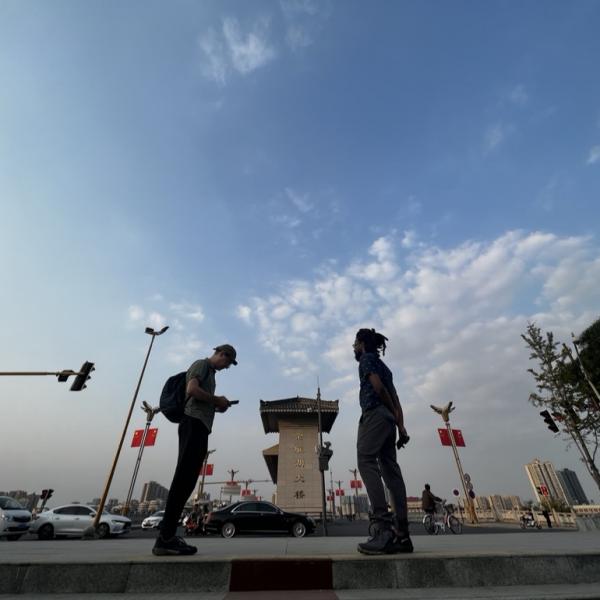On Impeachment and Nostalgia by Jeff Kang
On, March, 10th, 2017, all eight judges of the South Korean Constitutional Court voted for the impeachment of President Park Geun-hye, who had been implicated in a major scandal involving her close government-unaffiliated outside advisor named Choi Soon-sil. The scandal caused the outbreak of large-scale demonstrations that fundamentally led to the impeachment of Park, who is now under federal investigation. The uncovering of this corruption attracted much attention globally. While people took interest in discussing the occurrence itself, many also asked, “How did Park, an individual who appears to be unqualified for such a role, become president in the first place?”[1]
Part of the answer lies in the Korean people’s nostalgia for the glorious days of prosperity and economic development – particularly among the older generation. Although many individuals from the younger generation also supported Park, a larger majority of the older generation voted for Park in the memory of her late father: President Park Jung-hee. Park Jung-hee was a military dictator who led South Korea from 1963 to 1979. He took power after staging a coup on May 16th, 1961 then changed the constitution to solidify his rule. Today, many hail and admire him for rapidly developing the South Korean economy, industrializing and modernizing the nation, and saving it from poverty. However, others strongly criticize him for his dictatorship, inhumane treatment of political enemies and activists, promoting regionalism, and hindering the progress of democracy. Nevertheless, much of the older generation, who remembered or lived during this epoch of economic development, hoped that Park would revive such economic prosperity and continue the legacy of her father.
Such nostalgia for the past has become a recurring phenomenon in many countries. For instance, on June 23rd, 2016, the United Kingdom held a national referendum to determine whether it should leave the European Union or remain, and fifty-two percent of those who voted for its withdrawal. Brexit spurred a huge division between the nations’ younger and older generations; much of the younger generation voted for the United Kingdom to stay in the European Union, whereas many members of the older generation – mainly from England – wanted it to withdraw from the coalition. While issues such as immigration problems and national identity encouraged people to vote for withdrawal, the supporters of Brexit generally believed that the United Kingdom had been better off before it joined the European Union. Likewise, the victory of Donald Trump spurred much controversy, as he defeated Hilary Clinton with his slogan – “Make America great again!” Many Trump supporters were nostalgia voters, who wanted to reestablish an imagined ‘White, Christian America’ and longed for the 1950s and 1960s of American economic prosperity.
This notion that the past was better than the present is prevalent among people who only understand specific fragments of history. Historical phases of great prosperity and rapid economic development often overshadow the social problems, prejudice, lack of rights, and tragedies of the same time period and hinder people from recognizing the veiled darker realities of society. Also, individuals often forget that providential political situations and unpredicted events facilitate economic growth, such as wars, discovery of resources, technological advancement, and abrupt changes in the global economy. Furthermore, people frequently romanticize their memories and glorify the past as a means to assure themselves that they have lived meaningfully – they only recall what they want to remember. This tendency is understandable: a South Korean father who actively took part in the process of rapid economic growth by working diligently in his company or factory during the Park Jung-hee era could claim that his hard work paid off. Reminiscing about his younger self, he will be inclined to recall the positive aspects of South Korean society throughout the 1960s and 1970s.
During Park Jung-hee’s rule, South Korean citizens practically had no political freedom. Voicing opinions against the government was strictly prohibited and any form of activism led to severe punishment. Censorship was ubiquitous in media, film, and literature and intellectuals could only produce certain kinds of works approved by the government approved. Indeed, the country underwent great economic advancement and recovered from the poverty that the Korean War had created. Yet, while South Korea’s economy developed significantly, its democracy and politics regressed critically. The Park Jung-hee era was both a glorious and bleak period of history for South Korea. Furthermore, political and diplomatic circumstances often enable economic development to take place. During Park Jung-hee’s reign, South Korea had cheap labor to offer, a largely undeveloped economy, and the Vietnam War that it could invest in. These fortunate, coincidental factors enabled the South Korean economy to grow rapidly. Today, after years of growth, South Korea does not have the same opportunities and room for such economic progress; people need to comprehend this reality. This truth also applies to the Brexit supporters who wished to restore the economic prosperity of the United Kingdom before it joined the European Union and the American nostalgia voters who missed the affluence of the 1950s and 1960s.
We study history to move forward. We study history to learn from past mistakes, rightfully live the present, and create a better future. In order to understand the past, one must not have partial historical knowledge, but must earnestly analyze the political, economic, and social circumstances of any time period – even if what they discover may cause much controversy and dispute.
To prevent oneself from blindly following other people’s political agenda that makes references back to past glory, one must comprehend the entire truth behind past occurrences and acquire the capability to make decisions based on skeptical historical inquiry, not subjective opinions or partial recollections. For this reason, I encourage all readers to make an effort to study history and gain the ability to distinguish between exaggerated glorifications and truthful interpretations of the past.
______________________________________________________________________________________________________
On December 9th, 2016, 234 out of 300 members of the South Korean national assembly voted in favor of impeaching President Park Geun-hye, who, as mentioned above, had taken part in a corruption scandal involving her close government-unaffiliated outside advisor named Choi Soon-sil; this vote allowed the case to undergo federal investigation under the judicial system. Choi Soon-sil had advised Park on confidential political matters and accessed classified documents. Moreover, Choi had advantageously used her position as Park’s close advisor to force conglomerates such as Samsung, Hyundai, and LG to donate money to Mireu Foundation (Mireujaedan) and K-Sports Foundation, which were two foundations that she had established; it is highly likely that she used this money for her own profit. Also, various evidences indicated that Choi’s daughter Jung Yu-ra, under the chancellor’s special favor, had been unfairly admitted into Ewha Women’s University, which is often considered as the most prestigious women’s college in South Korea.
The Korean people, irritated and aghast, grouped together and demonstrated for the impeachment of Park. They were not only angry at Park for her corruption, but also shocked at her inability to acknowledge the seriousness of the problem and refusal to fully admit her wrongdoings. Every Saturday, protestors gathered and demanded Park’s impeachment for months. At one point, the number of demonstrators exceeded 2.3 million. Such a number was unseen in the history of South Korea – a country known for its history of major protests. The wrath of the people and other legal factors inspired all eight judges of the South Korean Constitutional Court to vote for Park’s impeachment on March, 10th, 2017.
[1] For those who want to know more about the incident, there is an explanation at the end of this article. Further information is also available in articles published by newspapers such as the Washington Post and New York Times.




